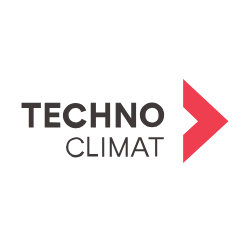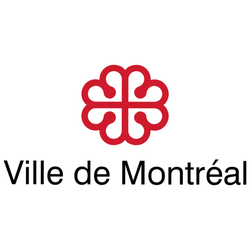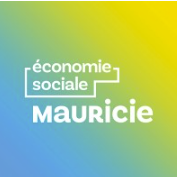
Closed
Community Organization Assistance Program (PAOC) – Support for projects
Last Update: October 27, 2025
QC, Canada
Supports community initiatives improving housing conditions in Quebec
Grant and Funding
At a glance
Funding available
Financing goals
Research and experimental development
Develop employee skills
Reduce the ecological footprint
See more
Eligible Funding
- Maximum amount : 80,000 $
- Up to 95% of project cost
Timeline
- Open Date : June 16, 2025
- Closing date : September 12, 2025
Eligible candidates
Eligible Industries
- Other services (except public administration)
- Public administration
Location
- Quebec
Legal structures
- Financial cooperative
- Non-profit
- Public or Parapublic institution
- Non-financial cooperative
Annual revenue
- All revenue ranges
Organisation size
- All organization sizes
Audience
- Rural or Northern Residents
Non-profit candidates
Sector of operation
- Social Services
- Economic, Social and Community Development
- Housing
Target groups
- General public
- Seniors
- New immigrants & refugees
- Rural / Remote communities
- Nonprofits / charities
- Low-income individuals / families
Revenue structures
- All structures
Scope
- Provincial
Overview
The Community Organization Assistance Program – Support for projects provides non-recurrent grants of up to $80,000 to eligible community organizations for projects that improve housing conditions, quality of life for tenants, and foster the development of innovative community housing practices. Eligible activities include studies, analyses, and collaborative initiatives related to the housing sector, aiming to meet critical needs within Quebec communities.
Activities funded
- Projects aimed at increasing services to the population in the areas of housing and accommodations.
- Initiatives that improve the quality of life for tenants.
- Projects that enhance housing conditions for residents.
- Development of new community-based practices in housing, such as retention in housing for people at risk of homelessness, support for vulnerable populations, or innovative financing mechanisms.
- Studies, analyses, or collaborative activities addressing housing needs, challenges, or solutions.
Examples of admissible projects:
$ 59,000
Introduce peer-support workshops for seniors in social housing
$ 47,000
Study boosting retention of at-risk youth in transitional housing
$ 75,000
Offer housing navigation for newcomers facing language barriers
$ 68,000
Launch a legal clinic for tenants facing eviction risks
$ 74,900
Develop a mobile app connecting tenants to repair services
$ 53,400
Implement smart energy-saving upgrades in affordable apartment blocks
Eligibility
- The applicant must be a community action organization established as a non-profit organization under the Quebec Companies Act (Part III), a cooperative under the Cooperatives Act, or a non-profit under the Canada Not-for-profit Corporations Act.
- The organization must be rooted in the community, maintain associative and democratic life, and have autonomy in determining its mission, approaches, practices, and orientations.
- The organization must operate in Quebec.
- Projects must originate from the community sector and align with objectives such as increasing housing services, improving tenant living conditions, or developing new community-based housing practices.
Who is eligible?
- Non-profit organizations involved in community action in the housing sector
- Cooperatives constituted under Quebec or Canadian law, working in community action
Who is not eligible
- Organizations whose mission or activities are political, partisan, religious, union-based, or professional in nature.
- Non-profit organizations created by a public body to serve public administration interests.
- Organizations listed in the Register of Enterprises Ineligible for Public Contracts (RENA).
- Companies or organizations that have failed to meet their obligations under a previous grant from the Société d'habitation du Québec in the last two years, after being duly notified.
Eligible expenses
- General expenses such as office rent, office supplies, and technological infrastructure (limited to a maximum of 50% of the grant amount).
- Salaries and employee benefits directly related to the project.
- Training and skills development costs for employees (for core mission support).
- Expenses related to volunteer support and coordination (for core mission support).
- Travel expenses in accordance with Quebec government reimbursement guidelines, including other related ancillary costs.
- Representation expenses (for core mission support).
Eligible geographic areas
- Quebec
Selection criteria
- Relevance: The extent to which the project addresses the objectives and identified needs, expected scope of impact in alignment with government housing priorities, and sustainability of the solution.
- Quality: Soundness of proposed activities and means, realistic and coherent financial plan, assurances of completion, partnerships, and contribution to advancing knowledge.
- Outreach and credibility: Degree of stakeholder engagement, knowledge transfer potential, and overall project impact.
- General quality of the application: Clarity in the description of the organization and project, well-defined objectives and expected results.
- Quality of writing: Completeness, precision, and conciseness of provided information and overall structure.
How to apply
1
Verify eligibility requirements
- Ensure your organization is a non-profit or cooperative established under relevant laws
- Confirm alignment with the mission and eligibility criteria of the Société d'habitation du Québec
- Verify your organization is active in Quebec
2
Gather required documentation
- Gather governing documents including incorporation papers or letters patent
- Prepare organizational history and general regulations
- Collect recent financial statements and activity reports approved by the annual general meeting
- Compile the list of board members and corresponding resolutions
- Prepare additional documents relevant to the proposed project (research brief, competencies, funding details)
3
Complete application form
- Complete the prescribed application form available from the Société d'habitation du Québec
- Attach all supporting documents as specified
- Provide clear and concise project description and objectives
- Detail the project's budget and other sources of funding, if any
4
Submit application package
- Submit your complete application and all required documents to the Société d'habitation du Québec
- Ensure submission is within 45 days of the official call for projects
5
Await evaluation and results
- Wait for the Société d'habitation du Québec to review and evaluate your submission based on outlined program criteria
- Be prepared to provide additional information or documents if requested
6
Sign funding agreement
- If selected, sign the funding agreement specifying the rights and obligations of each party
- Begin the implementation of your project according to the approved plan
Additional information
- The program is aligned with the Government Action Plan for Community Action 2022-2027.
- The program ends on March 31, 2026, though the government reserves the right to end it earlier.
- Public funding received from other sources must be declared for cumulative aid calculation purposes.
- The Société d'habitation du Québec may reclaim funds if information provided is found to be false or incomplete.
Apply to this program
Frequently Asked Questions about the Community Organization Assistance Program (PAOC) – Support for projects Program
Here are answers to the most common questions about the Community Organization Assistance Program (PAOC) – Support for projects. This section explains what the program is, how much funding is available, eligibility requirements, application deadlines, and other important details to help you determine if this grant is right for your business.
What is the Community Organization Assistance Program (PAOC) – Support for projects?
How much funding can be received?
What is the deadline to apply?
Who is eligible for the Community Organization Assistance Program (PAOC) – Support for projects program?
What expenses are eligible under Community Organization Assistance Program (PAOC) – Support for projects?
Who can I contact for more information about the Community Organization Assistance Program (PAOC) – Support for projects?
Where is the Community Organization Assistance Program (PAOC) – Support for projects available?
Apply to this program
More programs like this

Grant and FundingOpen
ÉcoPerformance — Recommissioning of building mechanical systems
Gouvernement du QuébecFunding to optimize the operation of building mechanical systems

Grant and FundingClosed
Call for projects to combat homophobia and transphobia
Gouvernement du QuébecFunds Quebec organizations’ projects combating homophobia and transphobia

Grant and FundingOpen
Innovative Projects Program
Hydro-QuébecSupports innovative, energy-efficient projects for multi-building developments

Grant and FundingOpen
Technoclimat
Environnement Québec (MELCC)Financial assistance for the demonstration of new technologies in Quebec

Tax CreditsWage Subsidies And InternsOpen
Financial assistance for the hiring of a person to integrate a job on a long-term basis
Gouvernement du QuébecSupports employers hiring candidates facing employment barriers

Partnering and CollaborationGrant and FundingClosed
International Climate Cooperation Program (ICCP)
Environnement Québec (MELCC)Supports Quebec-driven climate action projects in francophone countries

Grant and FundingClosed
Acting to support growth
City of Montreal (MTL)Financial support for Montréal non-profits advancing business growth

Grant and FundingClosed
Greater Montreal Climate Fund — 2025-2026 Call for projects
Greater Montreal Climate FundSupports innovative projects reducing greenhouse gas emissions in Montreal

Grant and FundingOpen
Social Economy Support Fund
Social Economy MauricieNon-repayable financial aid supporting social economy projects in Mauricie

Grant and FundingOpen
Support program for economic development projects (PAPDE) — Component 2 : Support for the development of strategic sectors and regions
Gouvernement du QuébecSupport the economic development of strategic sectors and regions
Sign up to our platform to access the Community Organization Assistance Program (PAOC) – Support for projects information sheet for free
Get access to 4,000+ programs, practical guides, personalized alerts, and an AI assistant to support your grant applications.